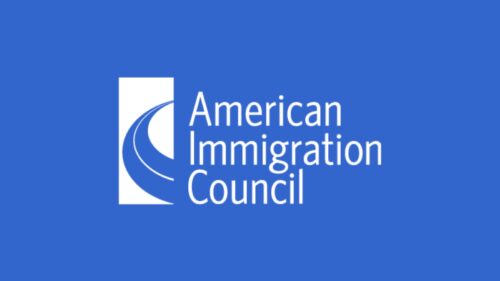WASHINGTON—Immigration groups filed a lawsuit today in the United States District Court for the District of Columbia against the Executive Office for Immigration Review—which oversees immigration courts—and the General Services Administration requesting information on the expansion and creation of immigration adjudication centers, which were established as part of EOIR’s Strategic Caseload Reduction plan designed to accelerate removal proceedings at the expense of due process.
The lawsuit—filed by the American Immigration Council, American Immigration Lawyers Association, the Chicago AILA Chapter, and the National Immigrant Justice Center— seeks the disclosure of records on the obscure procedural rules for immigration adjudication centers. The centers are a new initiative created under the Trump administration where immigration judges adjudicate immigration cases from around the country in remote-only settings that are closed to the public.
Immigration adjudication centers appear to have been created to address immigration court backlogs, but attorneys and immigrants facing deportation have little instruction on the procedures for appearing before these centers. Immigration lawyers and advocates have expressed concerns after public reports indicate the potential expansion of immigration adjudication centers across the country.
The lawsuit challenges EOIR’s failure to disclose information in response to a Freedom of Information Act request submitted in March 2020. EOIR and GSA have failed to disclose critical information about what immigration courts presently exist, immigration court expansion, and contracts governing this expansion.
“Immigration lawyers and advocates have an interest in pressing for more transparency in the immigration courts, helping ensure the due process rights of all who appear in court, and providing guidance to the lawyers representing people before these courts,” said Claudia Valenzuela, FOIA senior attorney at the American Immigration Council.
“Transparency is essential to a fair day in court. Unfortunately, the secretive creation and expansion of immigration adjudication centers where immigration judges conduct remote-only proceedings in facilities closed to the public demonstrate how opaque an already complex immigration court system has become at the hands of this administration. While the Department of Justice regulations require immigration hearings to generally be open to the public, this administration has imposed significant new barriers to the public’s ability to observe these proceedings and has led to some hearings being conducted in secret, calling into question whether the fundamental elements of due process are being met. We are proud to stand alongside our partners in this effort,” said Laura Lynch, senior policy counsel at the American Immigration Lawyers Association.
“Everyone deserves a fair day in court. The lack of transparency in EOIR operations compromises the integrity of our immigration system and undermines public confidence in this system,” said Nell Barker, chair of the American Immigration Lawyers Association’s Chicago Chapter. “The secretive expansion of immigration courts is a blow to due process and adds a layer of unnecessary unpredictability to a system that struggles to inform stakeholders about changing procedures. We are concerned about the increasing inaccessibility of immigration courtrooms to lawyers, clients, and the public.”
“The secretive and inaccessible immigration adjudication centers, where judges determine whether noncitizens will be deported to persecution and torture or permanent family separation, are a disturbing example of the manner in which this administration has developed and expanded numerous policies and procedures intended to expedite the deportation of noncitizens without due process,” said Sarah Thompson, senior litigation attorney at the National Immigrant Justice Center. “EOIR must make public its plan for future adjudication centers and the procedures under which these centers operate.”
A copy of the complaint is here.
###
For more information, contact the American Immigration Council:
Maria Frausto at [email protected] or 202-507-7526.


